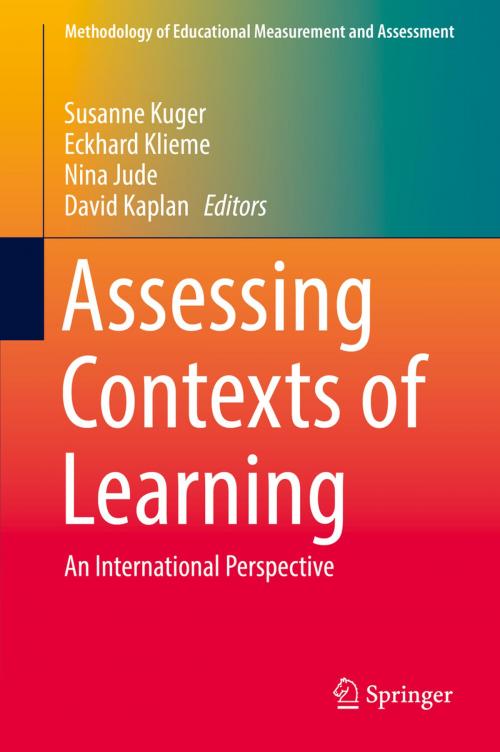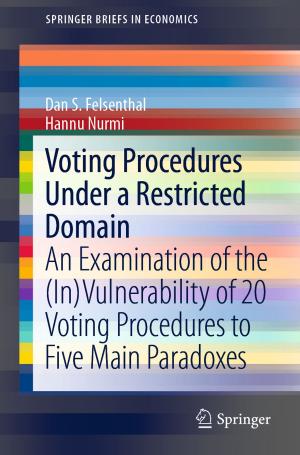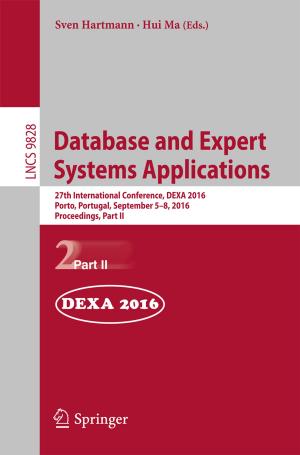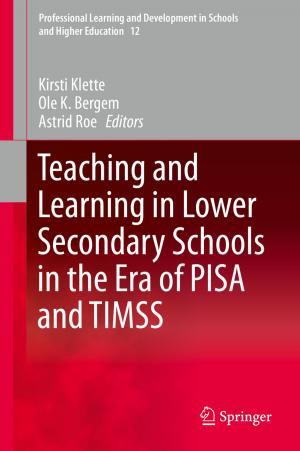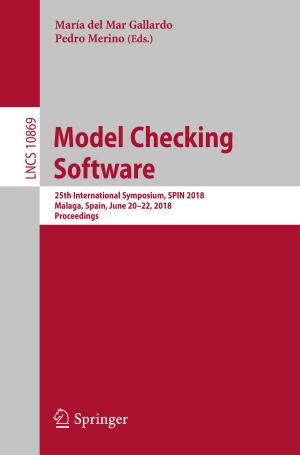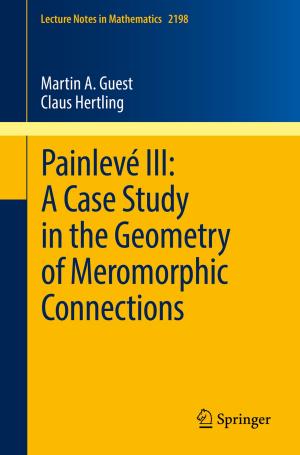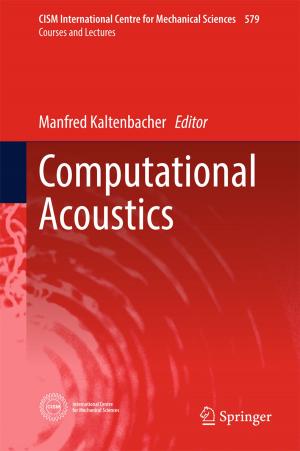Assessing Contexts of Learning
An International Perspective
Nonfiction, Reference & Language, Education & Teaching, Educational Theory, Evaluation, Educational Reform| Author: | ISBN: | 9783319453576 | |
| Publisher: | Springer International Publishing | Publication: | December 5, 2016 |
| Imprint: | Springer | Language: | English |
| Author: | |
| ISBN: | 9783319453576 |
| Publisher: | Springer International Publishing |
| Publication: | December 5, 2016 |
| Imprint: | Springer |
| Language: | English |
This volume brings together educational effectiveness research and international large-scale assessments, demonstrating how the two fields can be applied to inspire and improve each other, and providing readers direct links to instruments that cover a broad range of topics and have been shown to work in more than 70 countries. The book’s initial chapters introduce and summarize recent discussions and developments in the conceptualization, implementation, and evaluation of international large-scale context assessments and provide an outlook on possible future developments. Subsequently, three thematic sections – “Student Background”, “Outcomes of Education Beyond Achievement”, and “Learning in Schools” – each present a series of chapters that provide the conceptual background for a wide range of important topics in education research, policy, and practice. Each chapter defines a conceptual framework that relates recent findings in the educational effectiveness research literature to current issues in education policy and practice.
These frameworks were used to develop interesting and relevant indicators that may be used for meaningful reporting from international assessments, other cross-cultural research, or national studies. Using the example of one particular survey (the Programme for International Student Assessment (PISA 2015)), this volume links all theoretical considerations to fully developed questionnaire material that was field trailed and evaluated in questionnaires for students and their parents as well as teachers and principals in their schools.
The primary purposes of this book are to inform readers about how education effectiveness research and international large-scale assessments are already interacting to inform research and policymaking; to identify areas where a closer collaboration of both fields or input from other areas could further improve this work; to provide sound theoretical frameworks for future work in both fields; and finally to relate these theoretical debates to currently available and evaluated material for future context assessments.
This volume brings together educational effectiveness research and international large-scale assessments, demonstrating how the two fields can be applied to inspire and improve each other, and providing readers direct links to instruments that cover a broad range of topics and have been shown to work in more than 70 countries. The book’s initial chapters introduce and summarize recent discussions and developments in the conceptualization, implementation, and evaluation of international large-scale context assessments and provide an outlook on possible future developments. Subsequently, three thematic sections – “Student Background”, “Outcomes of Education Beyond Achievement”, and “Learning in Schools” – each present a series of chapters that provide the conceptual background for a wide range of important topics in education research, policy, and practice. Each chapter defines a conceptual framework that relates recent findings in the educational effectiveness research literature to current issues in education policy and practice.
These frameworks were used to develop interesting and relevant indicators that may be used for meaningful reporting from international assessments, other cross-cultural research, or national studies. Using the example of one particular survey (the Programme for International Student Assessment (PISA 2015)), this volume links all theoretical considerations to fully developed questionnaire material that was field trailed and evaluated in questionnaires for students and their parents as well as teachers and principals in their schools.
The primary purposes of this book are to inform readers about how education effectiveness research and international large-scale assessments are already interacting to inform research and policymaking; to identify areas where a closer collaboration of both fields or input from other areas could further improve this work; to provide sound theoretical frameworks for future work in both fields; and finally to relate these theoretical debates to currently available and evaluated material for future context assessments.
